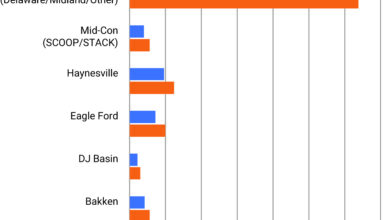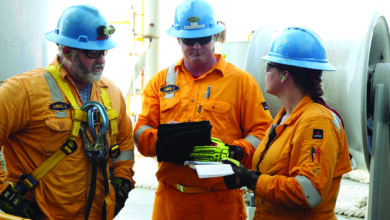Time to shift focus from cost to value, new report says
By Linda Hsieh, Editor & Publisher
As this issue of Drilling Contractor went to press in early March, the world was coming up on the anniversary of COVID-19 being declared a pandemic and everything shutting down. What followed was a wild year that toppled every oil and gas industry forecast we had going into 2020. It also kicked everyone’s well-laid business plans to the curb – no budget scenarios assumed a negative $37.63 oil price.
Not surprisingly, organizations immediately shifted into survival mode and seized on cost reduction as a lever they could pull. And it was a lever that many organizations found themselves returning to over and over again in the last 12 months, as lockdowns persisted and energy demand continued to lag.
But now, as we start to see the light at the end of the tunnel, with large-scale vaccination efforts ramping up around the world, is it time to shift focus away from cost reduction? A new report, jointly issued by Oil & Gas UK and Deloitte, is urging companies to do just that.
Value and collaboration, they said, should be the focal points as companies start to think long term again.
“Value is all too often confused with the financial cost of a project or contract, with the emphasis placed on the cost of individual line items. Less attention is paid to the total cost of ownership or other value-generating aspects,” the report stated. “Indeed, the emphasis on unit costs can erode trust and reduce good will to collaborate, as well as suppliers’ ability to make contributions that would enhance the overall value of ownership of the project.”
The report is based on a survey conducted in September/October 2020, which aimed to understand the key drivers behind collaboration, particularly between operators and their suppliers. Respondents to the survey picked cost reduction as the top reason for collaboration; risk reduction came in second.
While collaboration is always a good thing, the results of those efforts were often mixed and point to an imbalance between the two parties. While 67% of operators said more than half of their collaborations were successful, only 43% of suppliers agreed. Almost an equal percentage of suppliers – 41% – said less than half of their collaborative efforts proved successful. “This suggests that operators may continue to retain a larger portion of the benefits than suppliers,” the report stated.
A related finding is that 27% of suppliers said their contracts over the past year were only rarely or never cash positive. Further, 40% of suppliers said those contracts were only rarely or never fair, meaning that they didn’t realistically reflect risk-reward for the contracting entity. (As a comparison, 77% of operators said their contracts were fair either most of the time or at least occasionally.)
Factors for success, failure
The survey also tried to identify reasons for why a collaboration succeeded or failed.
With successes, it was found that having trusted relationships and ensuring mutual benefit for both parties were the top factors. “Sharing data with a view to welcoming supplier ideas and then creating appropriate key performance indicators (KPIs) for the right outcomes fosters collaboration.”
On the flip side, misalignment of expectations between the two parties was found to be, by far, the biggest reason for failure. “This year, we heard of cases where the lack of communication about contract cancellations, as well as contracts being put out for tender to drive prices down, had a negative impact on some long-term relationships.”
To achieve efficiency and performance gains in a sustainable way, the report highlighted the need to protect the health of the supply chain and called for a focus on three specific behaviors:
• Ensuring that risk and costs are borne appropriately and good performance benefits everyone.
• Using industry standard contracts committing to mutuality of payment terms and recognizing the supplier has to make an adequate return on investments in innovation.
• Focusing tender processes/evaluations on value added rather than unit rates, and providing flexibility to alternative offers as part of the bidding process. DC
Linda Hsieh can be reached at linda.hsieh@iadc.org.





